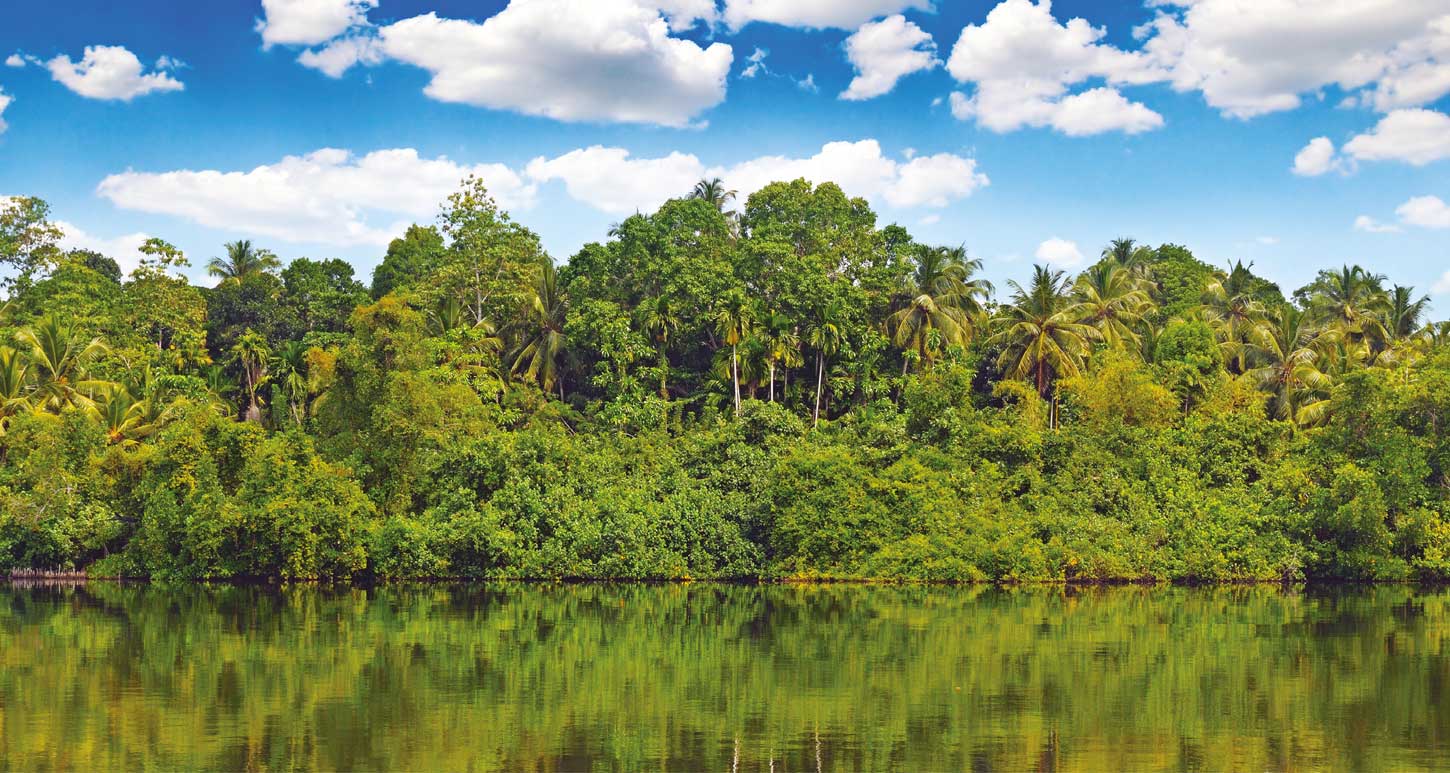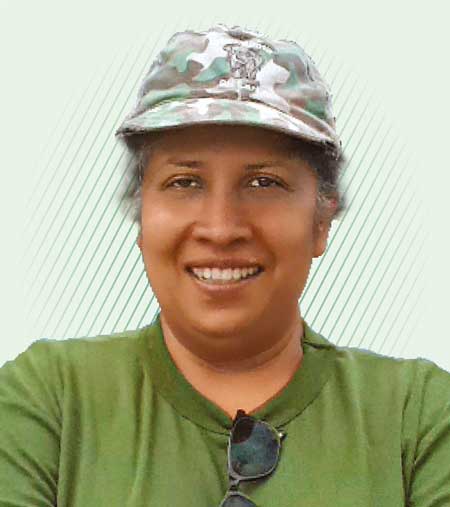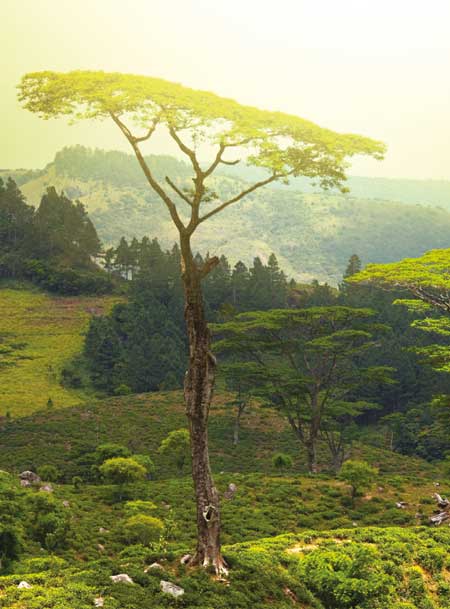CONSERVATION ENDEAVOURS
Securing the Landscape
Enoka Kudavidanage urges apt land use management to sustain the island’s biodiversity
Sri Lanka is an island of fascinating geography with finely aligned landscapes that are favoured by the island’s biodiversity.
Professor in Conservation Biology at the Sabaragamuwa University and the founder of Tropical Ecosystem Research Network (TERN) Enoka Kudavidanage believes that proper management of Sri Lanka’s landscape is essential for the country’s environmental conservation and progress.
She explains: “Large animals like elephants and leopards are now attracted to human dominant landscapes owing to forest fragmentation. Sri Lanka has the highest rate of elephant deaths due to conflicts with humans. With leopards, there have been over 40 known instances of death in the last five years. And smaller animals such as amphibians and reptiles, disappear without our knowledge as they’re very sensitive to habitat change.”
Forest fragmentation and degradation alongside unplanned land use practices have had long-term negative consequences that affect both animals and humans. She stresses that “instead of developing existing agricultural lands and finding ways to harvest more from them, we keep on cutting down forests thereby destroying land and fragmenting jungles, which attracts elephants and other animals to the human landscape.”
“A problem created by people should be addressed by people themselves” Kudavidanage contends, and adds “to overcome this issue, people must take action on appropriate land use management.”
With TERN, she says “We’re trying to make people aware of the ecosystem value, provide education on how to better contribute to conservation including encouraging people to buy land and leave it for conservation. It’s everybody’s job to look at correcting things that are being done wrong.”
As a conservation biologist, she affirms: “We have considerable forest cover that’s of global interest. We don’t need to do heavy development to be economically sustainable. We can make use of our natural resources in a sustainable manner. Take care of our forest cover and facilitate the survival of species. This’ll attract anybody interested in nature, and could lead to both ecological and economical gains for the country.”
Referring to her ‘5A Concept: Apply, Address, Assist, Aware and Advocate,’ which promotes nature conservation, she urges people to apply knowledge derived from research and training to address problems and assist productive community level action; and raise awareness and engage in advocacy for positive causes.
“Our natural resources are rich enough for us to economically develop. So knowledge is important and the best thing to do in terms of sustainability is to safeguard nature. It’s not a choice anymore, it’s something that we have to do,” Kudavidanage concludes.
“Knowledge is importantand the best thing to doin terms of sustainabilityis to safeguard nature. It’s not a choice anymore,it’s something thatwe have to do







